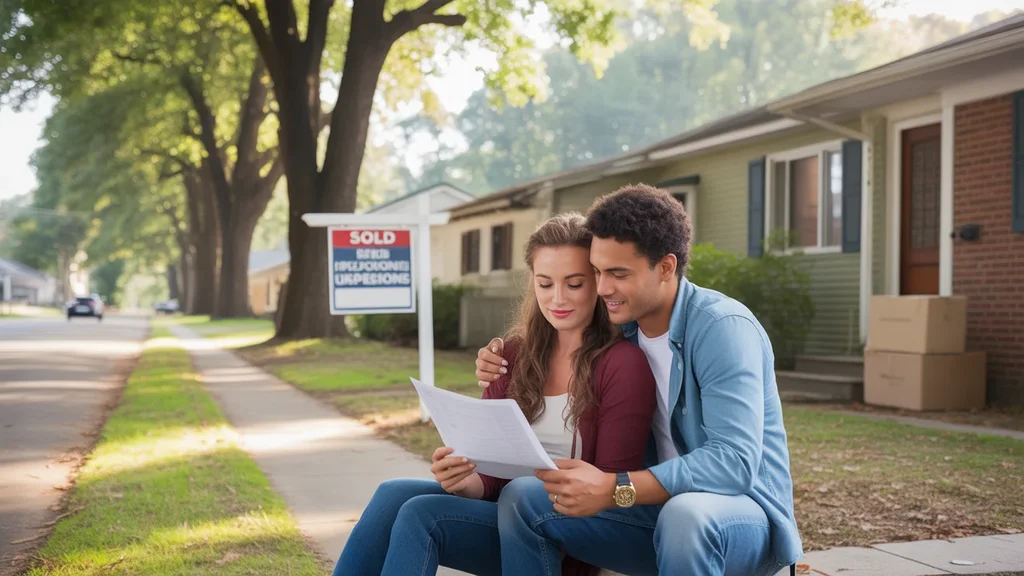The Housing Market in Gastonia Today

Gastonia, North Carolina is experiencing a dynamic housing market in 2023. Inventory has tightened over the past year as demand for homes in this growing Charlotte suburb remains strong. The area’s relative affordability compared to the city center continues to attract both renters and buyers. New apartment complexes and single-family developments are rising to meet the influx of residents.
The local job market is stable, anchored by the healthcare and manufacturing sectors. This economic foundation supports a healthy real estate climate. However, costs are steadily rising as Gastonia grows in popularity. Understanding the current landscape is key for renters and buyers looking to balance their housing budgets.
Renting in Gastonia: What’s Typical?
Apartments in Gastonia offer a more affordable entry point than purchasing a home. As of mid-2023, the average rent for a 1-bedroom unit stands at $1,250 per month. Upgrading to a 2-bedroom raises the typical rent to around $1,500. Renters can expect to pay $50 to $150 more for apartments with premium amenities or locations.
Newer apartment complexes in Gastonia often include trash service and internet access. Renters still need to budget for electricity, water, and renter’s insurance. Typical utility costs range from $150 to $250 per month. Popular areas for renters include the revitalized downtown district and the convenient commercial corridors near Franklin Square.
Owning a Home in Gastonia
The path to homeownership is achievable for many in Gastonia. The median home price currently sits at $325,000, which translates to an estimated monthly mortgage of $1,800 for buyers making a 10% down payment. Owners must also factor in additional costs like property taxes, homeowner’s insurance, and any HOA dues.
Property taxes in Gaston County average 0.87% of assessed value, adding around $235 per month to the typical mortgage payment. Insurance premiums vary but budget $100 to $200 monthly. Some neighborhoods have quarterly or annual HOA fees ranging from $200 to $500. Maintenance and repair costs are also important variables in the homeownership equation.
Cost of Living in an Apartment vs House in Gastonia
Gastonia’s homeownership rate stands at 56%, just under the national average. The decision between renting and owning often depends on lifestyle preferences and long-term financial goals. Younger professionals may prioritize the flexibility of renting, while growing families look to build equity through homeownership. Retirees are active in both the rental and purchase markets.
Upfront costs create the largest barrier to homeownership. Saving for a down payment, closing costs, and moving expenses requires significant capital. Renters can more easily budget for application fees and security deposits. Here’s a look at how monthly costs compare for a typical renter and owner:
| Expense | Apartment | House |
|---|---|---|
| Rent/Mortgage | $1,500 | $1,800 |
| Property Tax | $0 | $235 |
| Utilities | $200 | $350 |
| Insurance | $20 | $150 |
| HOA/Fees | $0 | $100 |
| Total | $1,720 | $2,635 |
Estimates reflect mid-range properties and average usage.
On a monthly basis, renting in Gastonia tends to be about $900 less expensive than owning. Of course, these scenarios don’t reflect every situation. Larger families in spacious apartments may have higher rent and utility costs than a single owner in a small bungalow. To further explore budgeting, review these Monthly Budget Examples for Gastonia Residents.
What’s Driving Costs Up or Down?
Several factors influence Gastonia’s housing costs in both directions. The area’s popularity with commuters supports rising rent and purchase prices. Construction of new housing stock hasn’t kept pace with population growth. This supply and demand imbalance puts upward pressure on prices, especially in desirable neighborhoods.
Conversely, Gastonia’s distance from central Charlotte helps check some of the appreciation. Zoning for higher density developments could also help keep costs manageable. Economic stability and job growth across the metro are key to long-term affordability. Major employers moving to the region would likely spur additional housing demand.
FAQs About Housing in Gastonia
- Is Gastonia affordable to live in? Gastonia offers a lower cost of living than Charlotte proper. Many consider it an affordable suburb, but rising prices are impacting residents. Housing costs are the largest factor.
- Why are housing prices changing? Steady population growth and limited inventory are driving prices upward. Gastonia is also becoming more attractive to commuters and remote workers.
- How does Gastonia compare to nearby cities? Housing costs in Gastonia are lower than Charlotte, but higher than some rural areas of Gaston County. Prices are most similar to other growing suburbs like Belmont and Mount Holly.
Making Smart Housing Decisions in Gastonia
Choosing between renting and owning in Gastonia requires a close look at your finances and future plans. In general, buyers can expect to pay $600 to $1,000 more per month than renters. However, homeownership provides the opportunity to build long-term wealth and equity.
Whichever path you choose, be sure to consider the full picture of monthly expenses. Look beyond rent or mortgage payments to include utilities, insurance, and maintenance costs. Creating a comprehensive budget will help you find the right housing fit. For more information, check out our complete Cost of Living in Gastonia (2025 Guide).
